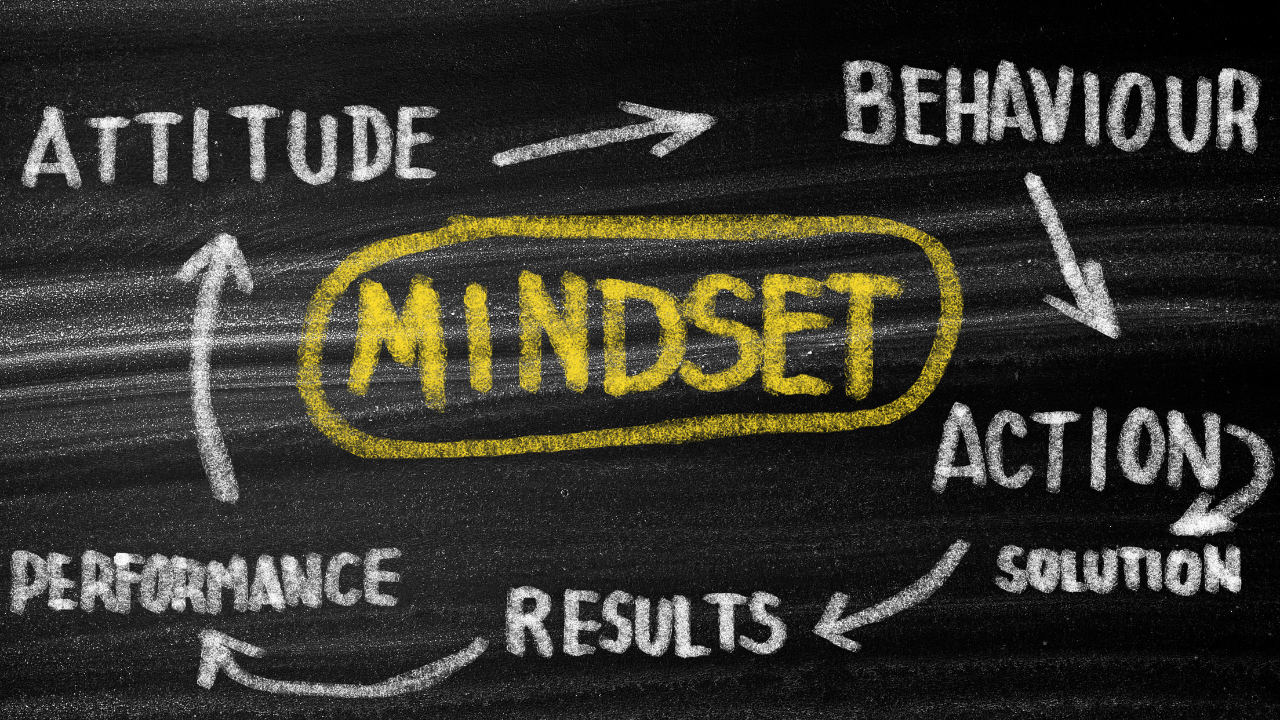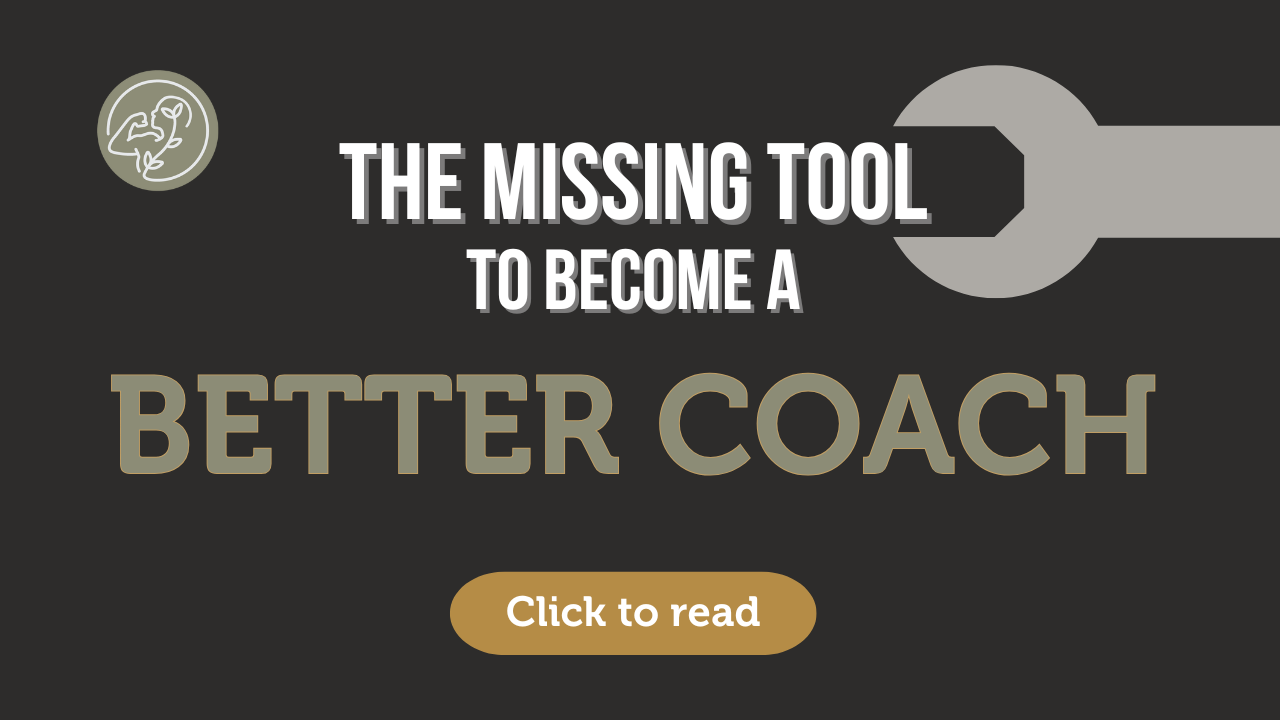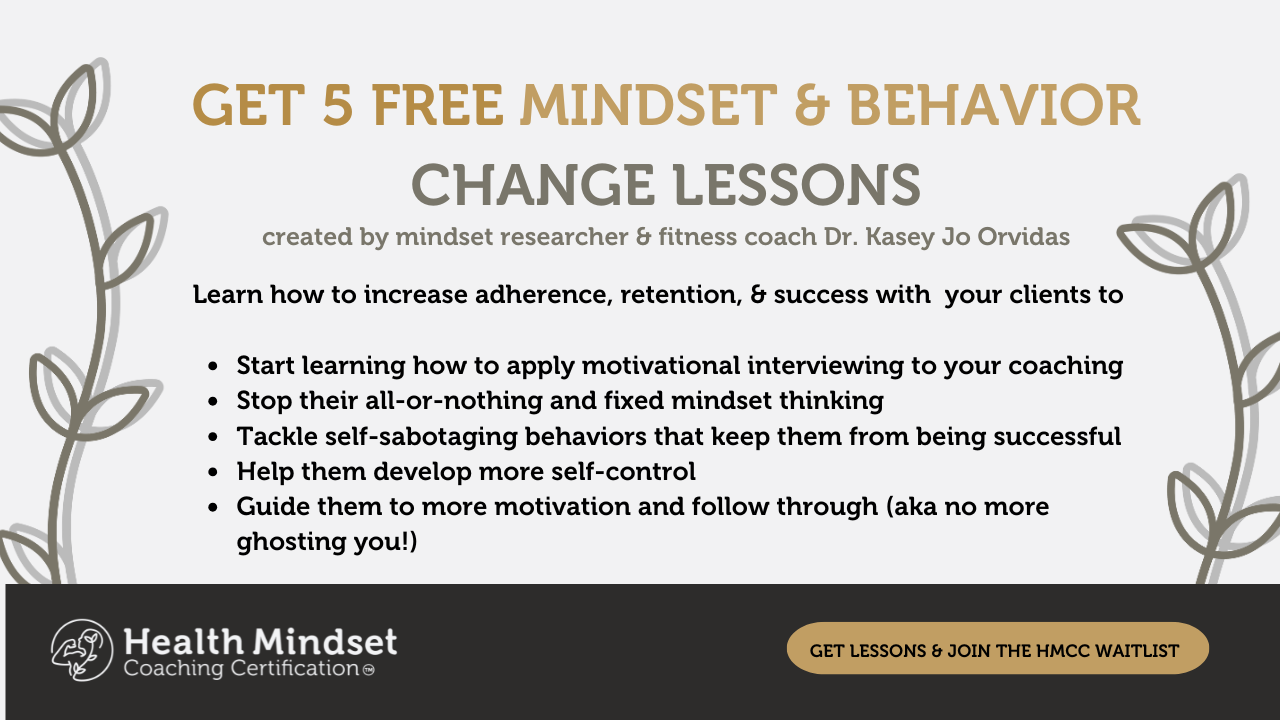5 Common Growth Mindset Myths and Mistakes Fitness Coaches Make
Jul 19, 2024
Over the last several months, I've noticed that I'm seeing more coaches talking about growth mindset, which is exciting! As a mindset researcher, I know just how powerful this stuff can be when it comes to helping people stop self-sabotaging and make changes that actually last.
However, with this growing popularity, I come across coaches talking about growth mindset incorrectly all the time.
Growth mindset has become a buzzword in the world of fitness coaching. Unfortunately, many fitness coaches out there have no formal training or education in mindset and behavior change, so they sometimes unintentionally push their clients toward a fixed mindset or a false growth mindset.
Now, I'm not here to call people out or prescribe to cancel culture, but, as always, I'm here to teach and provide you with the tools to help your clients get better results, faster
So, what exactly does growth mindset mean, and how can it benefit both coaches and their clients? More importantly, what are the common mistakes fitness coaches make when trying to help their clients cultivate this mindset?
Here, I'll discuss common mindset myths and mistakes I've seen fitness coaches make and how you can leverage the science of mindset to become a better fitness coach with happier and more successful clients.
Table of Contents
What is Growth Mindset Theory?
What is a False Growth Mindset?
Growth Mindset Myths
Growth Mindset is Synonymous With Being Flexible or Having an Open Mind
A Growth Mindset is all About Effort and "Try Harder"
"Praise the Process, Not the Outcome" is Growth Mindset
Just believe: "You Can do Anything" is Growth Mindset
Growth Mindset Misconceptions Aren't Uncommon…
Learn More About Growth Mindset
Connect with us!

What is Growth Mindset Theory?
The growth mindset theory, developed by Carol Dweck, says that people who believe they can develop their talents through hard work, good strategies, and input from others have a growth mindset. This is the opposite of a fixed mindset, where people believe their abilities are static and unchangeable.
(This is exactly what I studied during my Ph.D.)
Promoting a growth mindset in fitness coaching involves helping clients understand that their physical and mental capabilities can improve with effort and persistence.
Growth mindset training is one of the key components of KJO Coaching. We place a strong emphasis on teaching our clients to overcome their fixed mindset beliefs and embrace growth mindsets.
What is a False Growth Mindset?
A false growth mindset happens when people believe they are cultivating a growth mindset but are not genuinely practicing growth mindset principles.
For example, a fitness coach might tell clients to "work harder" without providing the necessary support and strategies for improvement. This superficial approach can lead to frustration and a lack of real progress.
Instead, a true growth mindset involves recognizing that the client can develop their abilities through dedication, learning, and perseverance.
Keep reading to learn how fitness coaches can avoid the most common mindset mistakes and actually help their clients cultivate a growth mindset.
Growth Mindset Myths
Most of us have growth and fixed mindsets about various aspects of our lives, so learning to embrace a growth mindset in one aspect will help us transfer that knowledge to other aspects of our lives.
Your client might have a growth mindset about their ability as a cook but a fixed mindset about their ability to achieve their fitness goal. Once they learn to differentiate between fixed and growth mindsets and recognize their existing growth mindset patterns, they will be able to implement these behaviors to improve their mindset around their fitness goals.
There are a lot of misconceptions about growth mindset, so I'm laying out the most common myths and mistakes here:
Growth Mindset is Synonymous With Being Flexible or Having an Open Mind
You can have a growth mindset AND be flexible or open-minded, but they're not the same thing.
A growth mindset is more about believing in your ability to change and being willing to put forth the effort, even when things get hard. It's about pursuing self-improvement even when everything feels like a struggle and you want to throw in the towel.
If you have a growth mindset, it's easier to see failures and setbacks as opportunities to grow and learn.
With a growth mindset, you're also more likely to take criticism constructively and persist in the face of challenges.
A Growth Mindset is all About Effort and "Try Harder"
The process of growth includes more than just effort. It's about trying new strategies, not just trying harder.
A growth mindset is also about seeking input and help rather than assuming you need to do everything on your own.
The worst thing that can come from this misconception is praising effort when someone isn't actually learning (and I see this from coaches too frequently). This praise may reinforce negative habits and prevent your client from learning how to achieve their goals.
"Praise the Process, Not the Outcome" is Growth Mindset
While this is not totally false, it's incomplete. I often see people focusing solely on the process rather than the outcome, which misses the mark a little bit.
What we need to do is tie the process TO the outcome.
It's not necessary to lose sight of your desired outcome and hyperfocus on the process alone. Cultivating a growth mindset requires you to see the process (including the challenges, hardship, effort, etc.) as something you should lean into (maybe even get excited about) because you know it's the necessary path to success.
Just believe: "You Can do Anything" is Growth Mindset
It may come as a surprise, but the "you can do anything" attitude can actually lead to a fixed mindset.
If all someone needed to do was BELIEVE, they might start to think they're "not meant for it" if things don't work out.
As a coach, you still need to guide your clients to seek resources, manage barriers, and find what works for them.
The journey will be challenging, and there will be speedbumps along the way, but it's important to teach your clients that things getting challenging doesn't mean they won't ever achieve their goals.
If being successful really only required "belief," I wouldn't be writing this blog (and probably wouldn't have a job!).
Growth Mindset Misconceptions Aren't Uncommon…
Beyond growth mindset work, misinterpretations of research in general and nudging messages from research studies to fit a specific narrative are not uncommon.
And often, people don't even realize what they're promoting is incorrect, which is why I'm here!
It takes time and practice to understand much of this research, so if you're curious about other mindset messages and whether or not they're legit, shoot me a DM, and PLEASE ASK!
Learn More About Growth Mindset
Mindset is my absolute JAM.
Like, I spent nearly 5 years researching this stuff during my Ph.D. to better understand how to help people exercise more and eat healthier — starting with their mindset.
I'd love to share more of this knowledge with you!
Although I don't think it's required to have a Ph.D. if you're a fitness coach and you really want to take the time to better understand the science of mindset and behavior change to increase adherence, retention, and success with your clients (and steer clear of the misconceptions I listed in this blog post), the Health Mindset Coaching Certification is for you!
If you want more info and some FREE primer education resources to start your mindset knowledge journey ASAP, add your name and email to the waitlist HERE!
We've had hundreds of coaches complete the Health Mindset Coaching Certification already, and I can guarantee that after going through this program, you'll feel more confident in your abilities to help your clients with the psychological aspects of their health and fitness, such as mindset, habits, and negative thought patterns.
Learn about mindset, psychology, and how to apply the research and science to your coaching practice through the Health Mindset Coaching Certification!
Connect with us!
Email: [email protected]





